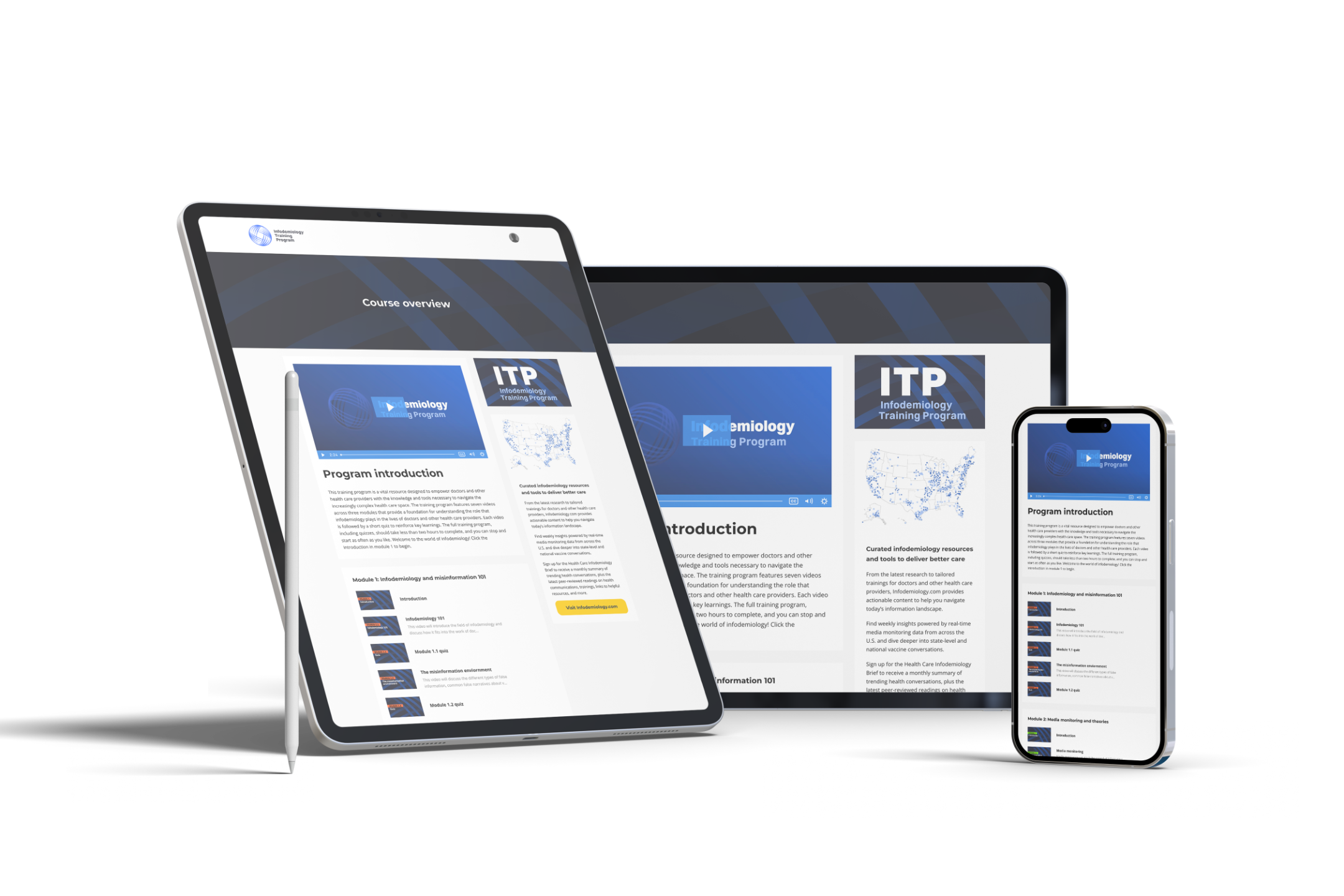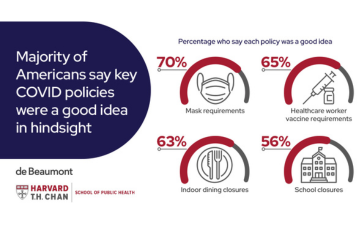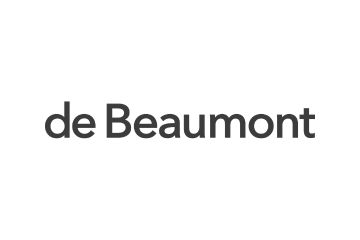The COVID-19 pandemic proved how quickly health information can spread, whether true or not. The rapid spread of health information across digital channels and devices has the power to help or harm millions of people.
Meeting Information Needs in a Challenging Landscape
Public health professionals face the increasingly difficult challenge of operating within this information-saturated environment. Accurate and timely health information is constantly competing for people’s attention in a landscape where algorithms can fuel the spread of false or misleading content by prioritizing clicks without regard to truthfulness. Many people struggle to discern what is and is not true on the internet today, due in part to persuasive strategies – like using emotional or sensationalized language, cherry-picking data that serve a particular narrative, manufacturing uncertainty, and spreading conspiracy theories – that are hallmarks of misinformation.
Every minute in the United States, hundreds of millions of people interact with trillions of pieces of content. It’s no easy task to break through this noise with fact-based health information – when sensationalized language, opinions, and false or conflicting narratives compete for attention. False content is everywhere: between March 2022 and March 2023, 71 percent of all vaccine opposition and misinformation online originated in the U.S., according to research by the Public Good Projects (PGP).
For a public health professional, this problem can feel insurmountable. How does one keep up with the rapid spread of health information on the internet while also facing the ongoing challenges of limited staff capacity, funding cuts, and an erosion of public health authority – especially in a world where many state and local health agencies still regularly use fax machines?
A Solution: The Infodemiology Training Program
To address these complex and ever-evolving questions, the de Beaumont Foundation and PGP have developed the Infodemiology Training Program, a free, asynchronous, video-based training that helps public health professionals recognize, monitor, and report on trending health narratives online.
“Infodemiology is a rapidly advancing discipline within public health, and is driving the adoption of multiple new methodologies as well as consolidating best practices from fields such as epidemiology, journalism, and political science,” said Dr. Joe Smyser, CEO of PGP. “In today’s quickly changing world, it’s an essential function for health departments that want to understand the information landscape, build resiliency, and improve health outcomes.”
Disease surveillance has long been a cornerstone of public health practice, and now the field must apply such skills to monitoring and responding to trending health narratives. Much like epidemiology is employed in an epidemic, infodemiology can be used to counter an infodemic. But it is also critical beyond an infodemic. State and local public health department practitioners can use these cross-cutting skills to integrate the study of public health information into their ongoing practice.
A New Resource: Data Dashboards
Anyone who has access to the internet and a healthy curiosity for learning can apply infodemiology to their work. By tracking trending narratives, public health leaders professionals can gain important insights that can make their work more efficient and impactful. In addition to the training, de Beaumont and PGP have launched a Monitoring Lab with free, state-level media monitoring dashboards on Infodemiology.com. Intended for users who have completed the training program or are otherwise familiar with infodemiology, these show trending narratives and information spikes across public health topics such as vaccines, reproductive health, substance use, and mental health. The Monitoring Lab also provides timely recommendations from experts on how to respond.
Go to Infodemiology.com to explore and sign up for the training and dashboards designed for public health professionals, including epidemiologists, program evaluators, coordinators, and communications staff. The training features 16 videos across four modules that provide a foundation for understanding and applying infodemiology to your work.





